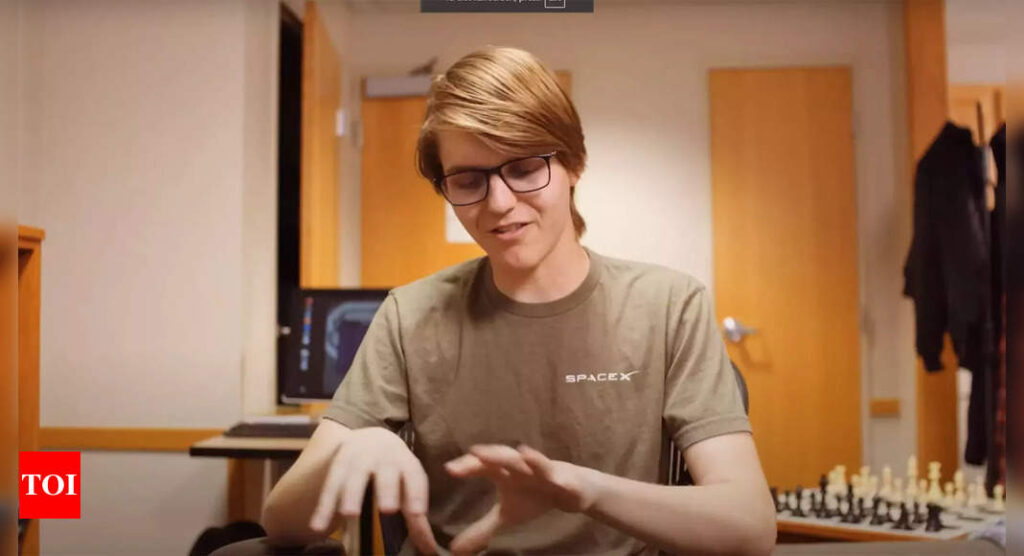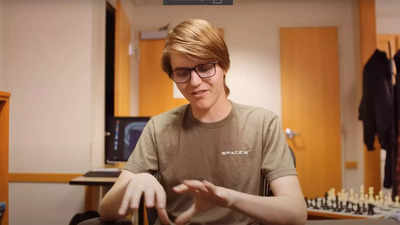Luke Farritor is the kind of young genius who makes you wonder if there’s a secret formula to being at the right place at the right time. With a unique combination of computer science smarts and a passion for history, Farritor has become a name to remember—whether you’re into artificial intelligence, ancient scrolls, or government efficiency (yes, you read that right). Let’s take a closer look at how this young innovator managed to make waves across different fields before even hitting his mid-20s.
A curious blend of tech and history
Luke Farritor wasn’t your typical history geek growing up—he didn’t just memorize dates and events. Instead, he learned Latin as a kid and practically lived in museums, soaking in ancient history. But his love for the past didn’t steer him away from the future. He enrolled in the University of Nebraska–Lincoln’s Jeffrey S. Raikes School of Computer Science and Management, where his fascination for technology took off. Farritor’s twin passion—history and computer science—blended into something extraordinary, though no one could have predicted how his career would unfold.
A million-dollar challenge with AI
In March 2023, while cruising to his SpaceX internship in Texas, Farritor stumbled upon something that would change everything: The Vesuvius Challenge. The goal? Use artificial intelligence (AI) to decode ancient scrolls that had been buried for nearly two millennia by the eruption of Mount Vesuvius in 79 CE. Oh, and the prize was a cool $1 million. Naturally, Farritor was all in.
From a history enthusiast to AI innovator
The twist was that the scrolls, buried under volcanic ash, were too fragile to be opened. But Farritor, with his knack for technology, quickly got to work developing an AI algorithm that could read them digitally. He wasn’t just solving the mystery of the scrolls; he was merging ancient history with cutting-edge AI. And soon enough, he unlocked the first Greek word from a scroll: Purple. Yes, purple. A color so rare in Roman times that it became synonymous with power. Who knew color could make you a tech hero?
From undergrad to award-winning innovator
Farritor didn’t stop there. In December 2023, his efforts earned him the Vesuvius Challenge’s First Letters Prize. But the real magic happened in February 2024, when he was named a co-winner of the $700,000 Grand Prize. Together with teammates Youssef Nader and Julian Schilliger, Farritor deciphered over 2,000 characters of text from the charred scrolls—five percent of the scroll’s total content. The best part? The text, written by the philosopher Philodemus, seemed to be a 2,000-year-old ‘blog post’ about how to enjoy life. Who knew ancient philosophers were so relatable?
Farritor, ever the modest genius, was quick to point out that his work was part of a larger collaborative effort spanning centuries. After all, it took decades of preservation and scanning to even get to this point. And yet, his machine learning model was the key to opening the scrolls and revealing long-lost knowledge from ancient Rome.
AI meets bureaucracy: Luke’s next big adventure
But Farritor’s story doesn’t stop in the realm of ancient texts. No, he also joined Elon Musk’s Department of Government Efficiency (DOGE)—where he works with a team of tech-savvy disruptors tasked with reimagining how the government functions. In his role, Farritor applies his AI skills to streamline government systems, making them more efficient, modern, and, hopefully, less frustrating for everyone involved. It’s as if Farritor went from cracking open ancient scrolls to opening up the black box of bureaucracy.
When he’s not cracking ancient codes or optimizing federal processes, Farritor is exploring the world of venture capital, where he’s putting his skills to work by investing in new, groundbreaking technologies. The guy just doesn’t stop.
Pushing boundaries and rewriting history
Luke Farritor isn’t just a tech whiz—he’s an innovator who’s redefining the way we think about history, technology, and the future. By combining his expertise in AI with his love for history, he’s opened a new chapter in both fields. His next big goal? To continue reading the rest of the Herculaneum Papyri scrolls and rewrite our understanding of the ancient world. He’s not just satisfied with the five percent of the text he’s uncovered—he wants it all.
With his eyes set on the future, Farritor’s journey is far from over. Who knows where this multi-talented young man will go next, but one thing is clear: wherever it is, history will be watching.


